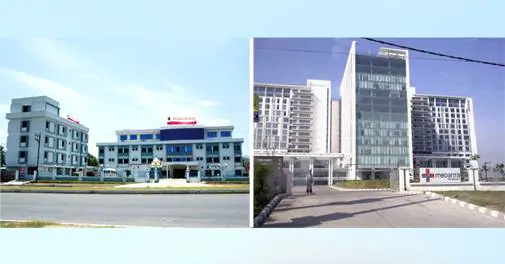The Rs 5,800 crore Manipal-Medanta deal has fallen through, according to multiple sources who confirmed the two sides could not agree on the valuation. Both sides are yet to respond to queries from BusinessToday.In though in a quick phone call Medanta’s founder Chairman Dr Naresh Trehan said: “I have never said that the deal was on. It is media speculation. What have they done on their own side? That is what we are going to figure out. There were talks going on but I don’t know what happened at their end. I don’t know the full truth. The truth lies at their end and not at my end.” Trehan, his family and associates own 55 per cent stake in the hospital chain that owns facilities in Gurgaon, Lucknow, Ranchi, Indore and Sri Ganganagar. PE Fund Carlyle owns 27 per cent of the company while Singapore’s Temasek owns 18 per cent of both Medanta and Manipal.
Blame it on market conditions or valuation mismatch
The overriding factor that impacted the deal is the new headwind in the sector: spiralling hospital expenses, including the introduction of minimum wages for nurses, capping of margins on drugs and consumables for hospitals. Couple that with the huge credit squeeze in the market, with banks not willing to lend, raising debt is turning into a massive challenge.
Discussions got stuck at Rs 5,800 crore valuation
The Rs 5,800-crore offer translates into an EBITDA multiple of about 24 times for Medanta, which has an estimated Rs 240 crore EBITDA. It’s way too high compared to the EBITDA multiples of industry’s listed peers, which range from mid-to-high teens only. Call it “aggressive,” or “fully-priced” – that really is the question mark in the deal. And if it is indeed fully priced, how and by when Manipal could expect to extract value from the deal, given the current market conditions? Could they have reworked the pricing to take it through? That is an open question with no immediate answers.
Both Medanta, Manipal had their strengths
There is little doubt that the big gain for Manipal would have been a vastly expanded footprint. In one stroke, Manipal would have been neck-and-neck with Apollo Hospitals in terms of bed strength. Currently, spread across 16 hospitals and 3,000 beds (largely in the South), Manipal has a presence in Bengaluru, Mangalore, Vijayawada and Goa. It also manages another 3,000 beds. With Medanta, in addition to Manipal’s 6,000 beds could have potentially taken Manipal to around 9,000 beds, which is just about the number Apollo has under its banner today. The Manipal-Medanta combine would have also added depth in the North, especially in the NCR region. With this deal, the two together would be at around 1,800 beds (1,200 of Medanta plus 500 of Manipal) in the NCR region alone. Another 1,000 beds are also being added in Lucknow and around 700 in Patna.
Double whammy of sectoral headwinds, high price led to deal’s demise?
For the ambitious Manipal group, which made an unsuccessful bid for Fortis Healthcare chain as well, it was an opportunity to expand its footprint and add both growth and girth to its healthcare business. This is its second setback after it was earlier outbid for Fortis last year. Analysts, however, say perhaps this may have been in the interest of both the parties, especially for Manipal, given the industry has seen market-cap destruction when industry players have gone on a reckless acquisitions spree.
In this case, the asset is being seen as a good one and the deal an ideal one, at least on paper. Given the market conditions, a high-priced deal may not have worked out in the best interest of the investors at the moment. It’s still unclear whether both parties intend to look at the deal at a later stage. Many in the sector had seen this as a win-win deal, had it gone through.
Analysts saw it working well for both
The deal would have fulfilled the Manipal group’s ambition to have a pan-India footprint. For Medanta, it would have been an exit from a position of strength in a market that’s consolidating. Also, with Medanta acquisition, Manipal would have secured an additional edge in cardiology. It’s a critical segment for any hospital chain as cardiology generally generates 30 to 40 per cent of the total revenue. A competitor for both the groups, requesting anonymity, also believes that the deal was positive for the industry, as it’s a reflection of the demand and a recognition of the value in the healthcare sector.













